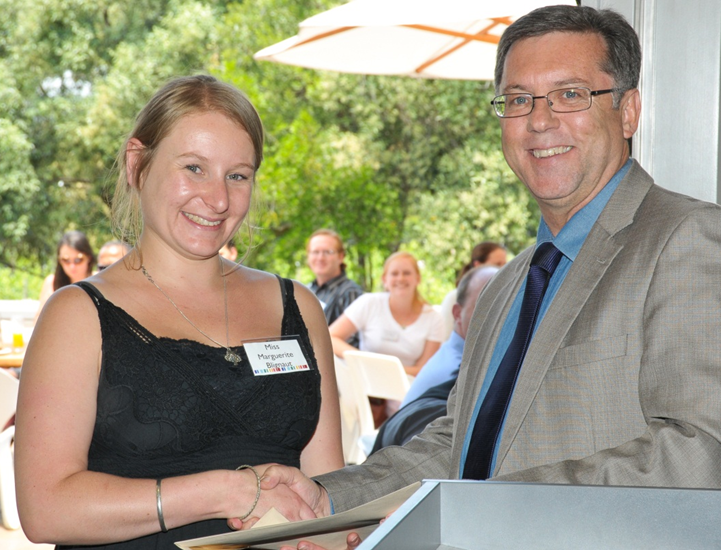After spending three years slaving away at a PhD, spending many a night and weekend in front of a computer, a PhD student loves nothing more than telling you what his or her research is about with long, tedious descriptions, unfathomable jargon and complex wording.
Being taught how to effectively communicate as a scientist is just as crucial as the research itself. Much of the research done not only has implications for fellow scientists and funders, but for the man on street as well, through education and policy formulation. For the second year running, Stellenbosch University’s Post Graduate Skills Development Programme organised the New Voices in Science workshops and competition, aiming to teach PhD students to communicate their research so that “your mother can understand it”, as coordinator Ronel Steyn describes it.
Two workshops were hosted by Stellenbosch University and presented by well-known science journalist and editor George Claassen and author Leonie Joubert. The workshops focused on presentation skills, sound bites and the art of describing your research in a concise yet exciting manner, as well as writing about the impact of research so that it is understood by both journalists and diverse audiences without over-selling, being informative and thought provoking with as little jargon as possible.
The C·I·B was well-represented at the workshops which finally culminated in a prestigious colloquium held at STIAS on the 5th of December and hosted by Prof Eugene Cloete, Vice-Rector for Research at Stellenbosch University. Of the 14 PhD students who were selected to present at the gala event, three were C·I·B students.
Natasha Mothapo was a finalist in the oral category and intrigued the audience with her research on highly invasive Argentine ants and their destructive influence on both our native ants and the Fynbos biome. Marguerite Blignaut and Bernard Coetzee were both finalists in the popular science article competition, and their articles are published, together with 22 others, in the New Voices in Science 2013 publication. Marguerite Blignaut walked away with the category prize for her piece entitled “Secret agents and the survival of aliens”, which looks at the role of epigenetics in invasive fountain grass. Bernard Coetzee’s article “Lessons from Dubeni” urged applying the precautionary principle and using the best scientific evidence when deciding if conservationists should allow legalised trade in rhino horn in response to the rhino poaching crisis.

